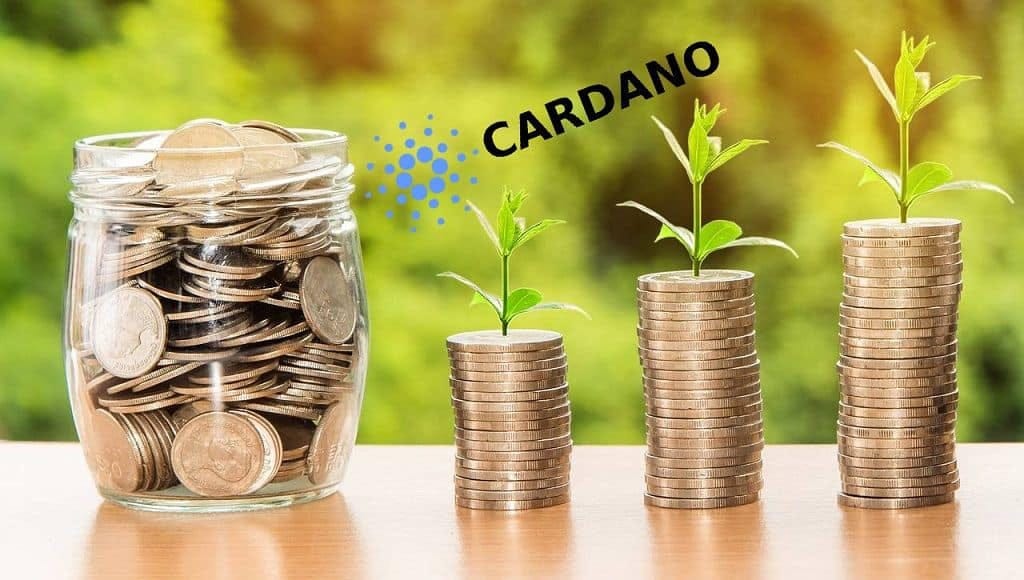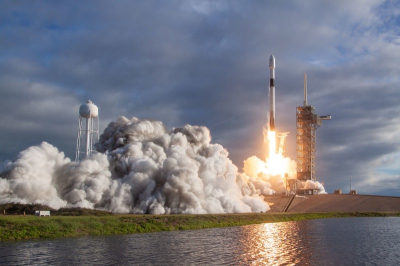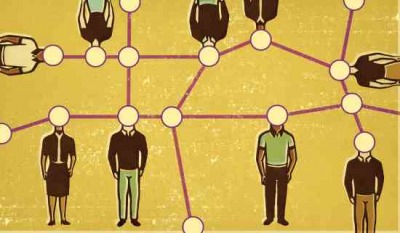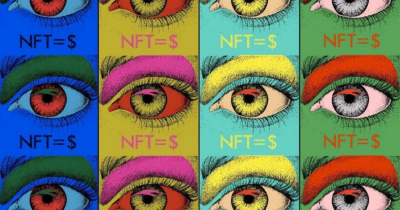
The role of a team behind a decentralized protocol
Try to guess how many times did Satoshi Nakamoto mention the term ‘decentralization’ in the Bitcoin white paper? As a matter of fact, not even once. As it turns out, the concept of ‘decentralization’ does not merely revolve around transactions.
A decentralized protocol must ensure that any user cannot spend a coin twice. Thus, Peer-to-Peer transaction is not really only between two entities as you can think. There a protocol in the middle which ensures that all transactions in a block are valid. Every user must trust the protocol that its transaction will be added to a block and the value will be delivered as expected. A decentralized protocol acts as an honest trust machine from point of users. If you dig deeper you will find that it is the team behind the protocol to which users really trust.
A team writes the source code of a client. The client is then publicly offered to people who are willing to keep the network running. Those people install the client on their computers and are rewarded for that. It works like that for all public and open networks.
Building protocol is a never-ending story
The building of a protocol is continual work and never ends. It is not possible to create a piece of software and be done with that forever. Such software would get obsolete very soon and be replaced. There are many reasons why the protocol must be constantly maintained, changed, and improved. People make mistakes. Thus there are always many bugs in the protocol which must be fixed. By fixing them, new bugs might be introduced. A bug is something, that can be misused by an attacker. The team cannot just let it be. Even if you get rid of all bugs, there are external conditions that change in time. New people come and want to use the protocol so there is a higher demand for scalability. It is important for mass adoption since if new users mean that transactions last longer time then people will migrate elsewhere. People will require new features or improvements. The team must listen to users and try to realize their wishes. Internet throughput is better and better every year, disc storage is cheaper, some cryptography cipher the protocol uses get old or can be cracked and there are new ones available. The team must react to all these events to stay relevant.
A centralized team behind decentralized protocol?
There are always real people behind the protocol. It might be a team or a few individuals around the world. It does not matter. The source code of the protocol is open and public. Mostly available on GitHub. Everybody in the world can find, it, see it and propose some change.
You can find Cardano repositories here: https://github.com/input-output-hk
Even if everybody can propose some change, either as a proposal document or directly in the source code, the important is who is responsible for accepting and approving proposals. There are always just a few people who have the right to merge changes in the source code into a so-called master branch. It is a branch from which a new client will be built to be publicly offered to people. In other words, behind every client, there is always a source code from which it was created.
Well, there is a globally run decentralized protocol and just a few centralized individuals who have a strong position to influence the shape, features, and abilities of the protocol.
I wrote another article about decentralization:
How to define ‘decentralisation’?
A plethora of individuals has become fond of blockchain technology, mainly owing to the ‘decentralisation aspect’ as it…
medium.com
So now, I just put in a few words as I understand it.
Decentralization is about splitting rights to the maximum independent individuals and trying to avoid strong points of decision.
It must be true for consensual rights related to protocol and also for project governance. A decentralized protocol will be just a toy in the hands of a few individuals if there is not built a decentralized democratic organization around it.
If there is a weak point somewhere then it might be and eventually will be misused. History is full of examples. We have to do our best to avoid any centralized weakness.
The role of a strong leader behind the project
You can ask whether it is all right if there is a strong leader behind a project. It is the case for Cardano where Charles Hoskinson plays a very important role. He visited many countries and debates with politics and business leaders about blockchain and Cardano. He also stands behind IOHK so basically behind the development team.
If the protocol is properly decentralized then the leader has no influence on consensus. For example, he cannot censor transactions. However, he can have a strong opinion and influence on features that are to be implemented. It is just fine when the protocol development is in progress and the work was not finished. However, once all 5 development stages are finished he should not have the influence he holds now.
Check Cardano roadmap: https://cardanoroadmap.com/en/
Why build decentralized governance?
Thre are always more groups of people behind the protocol. Each group, or even individuals, is searching for its own benefits. Besides that, there might be strong pressure from outside. Imagine, that Cardano becomes the major global financial system. There will be whales, politics, and others who will want to control it. As I stated above, there cannot be any centralized weakness in the system. All must be eliminated. It is very important as a protection against pressure and attacks.
The most important thing which must be enforced by the decentralized system is to serve the majority of users. Not to a few individuals. Not to developers. Not to miners. Not to politics and not to whales. The majority must democratically decide how the financial system should work.
Let’s look at one example. Imagine that some users want to introduce privacy on the first layer of the protocol and some not. Introducing privacy could mean that investors stop to buy the protocol native tokens and the price will go down. So there are two groups of people with different interests. Who should decide about privacy? Should just developers decide? Or some minor group influencing developers? Or should it be a community decision? Of course, it must be a community decision because the change significantly changes the base characteristics of the protocol and the majority of users must stay with the protocol.
Decentralized governance
First of all, let’s look at what we have seen so far in crypto. We saw many forks of Bitcoin and Ethereum. There were some technological or financial interests of parties that resulted in forks. A consensus was not found among people behind projects so they split their effort and projects were split as well. Nowadays, we have Ethereum classic and many forks of Bitcoin, the most famous one is Bitcoin Cash. Unfortunately, nothing was improved after that and there is still the same risk behind the projects.
Decentralized governance should be built upon democratic principles. An important part of it is some form of decentralized voting. Thus, all participants can come to a consensus and protocol development should follow the wishes of the majority of users.
Having voting rights could probably be based on the holding of ADA. The more ADA you have the higher is your influence on protocol development. However, it might not be as simple as it looks. Not every user can be interested in voting or has needed the knowledge to make the right decision. Some kind of delegation of voting rights will be probably introduced.
It is also important to have some treasury model. Development, marketing, and all other related things must be done by someone who might want to be paid. Some % from transaction costs will be probably put into the treasury.
So there will be some system where all improvement proposals and all other project-related activities will be listed. Items in the list can be prioritized and the needed amount of money can be allocated to items. All that based on decentralized and democratic voting.
Every user will have a chance to submit some improvement and the community will have a chance to decide what to do and what not to do. Possibly what to postpone.
Bob submits a ballot that outlines a series of marketing operations. Alice submits a ballot with a series of technical improvements. These two ballots will be then shown to the community, which will vote on which one is more important and should be executed right now.
Even with decentralized governance, there still be real people
Even if a team succeeds in building decentralized governance real people will write the code and build new clients. With our current knowledge, we are not able to automate everything. Still, there will be trust in people. The key difference is that some part of that process will be decentralized and transparent. Moreover, the community will have the right to choose whom to trust. In the ideal case, the community could vote about the leader or individual developers who will implement the proposed change. It is achievable.
If would be nice if also approving changes into the codebase or building clients could be somehow decentralized. However, it could a challenge.
We talk only about development but you have to realize that Cardano wants to speak with people around and find out what they need. Maybe, some marketing will be important in the future for mass adoption. For all that, we need real people and again, the community should choose who should work for Cardano.
Cardano sustainability
Sustainability is one of three Cardano pillars. If you check the Cardano roadmap once again you will find that the last development phase Voltaire is dedicated to sustainability. The Voltair phase should ensure that the network becomes self-sustainable. You can read in the roadmap:
“When both a voting and treasury system is in place, Cardano will be truly decentralized and no longer under IOHK’s management. Instead, Cardano’s future will be in the hands of the community, who will have everything they need to grow and evolve Cardano from the secure, decentralized basis established by IOHK.”
Summary
I hope you understand why there is no decentralization without decentralized governance build around the protocol. The community must decide which direction to take. Decentralized governance is also important as protection against pressure from the outside world. We try to build a decentralized system from the nineteen century. We still did not succeed. Hopefully, Cardano will manage that and we all will benefit.
 The Cardano Protocol is well prepared for the Future
The Cardano Protocol is well prepared for the Future Decentralization is at the heart of Cardano
Decentralization is at the heart of Cardano About Tokens on Cardano
About Tokens on Cardano Cardano Smart Contracts
Cardano Smart Contracts